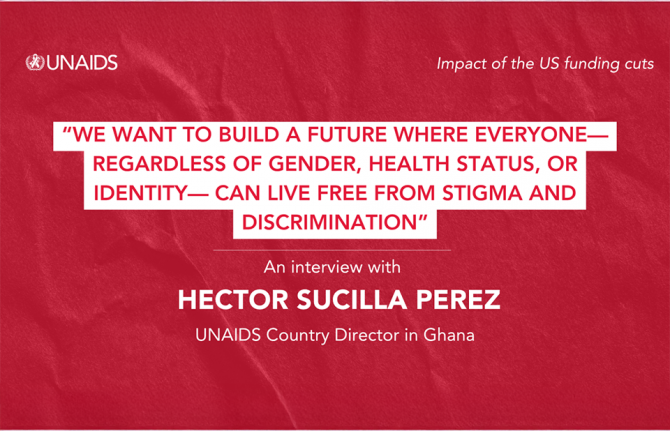
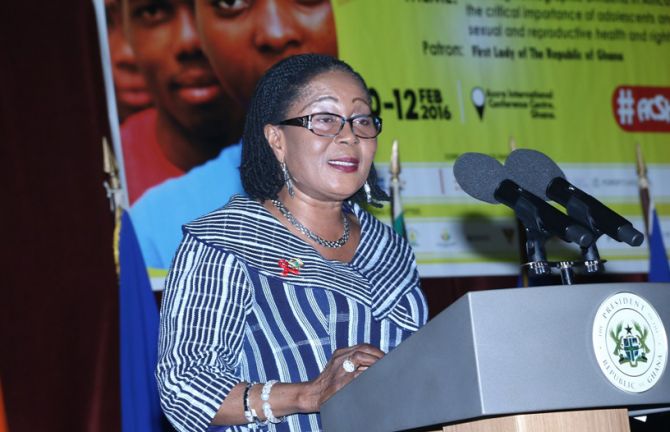
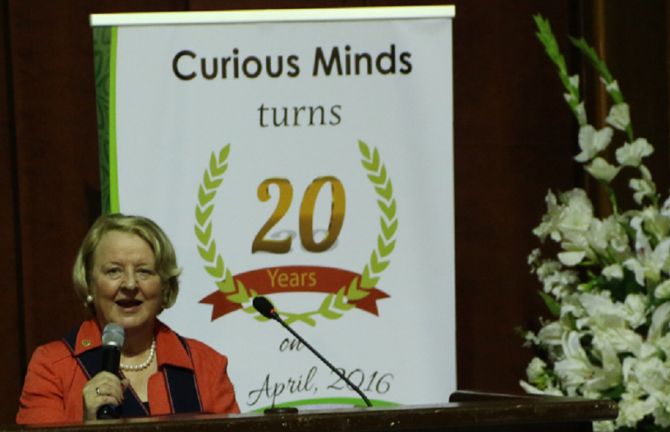
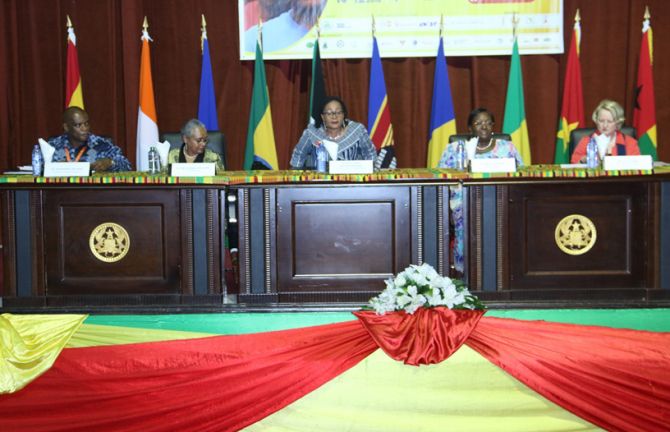
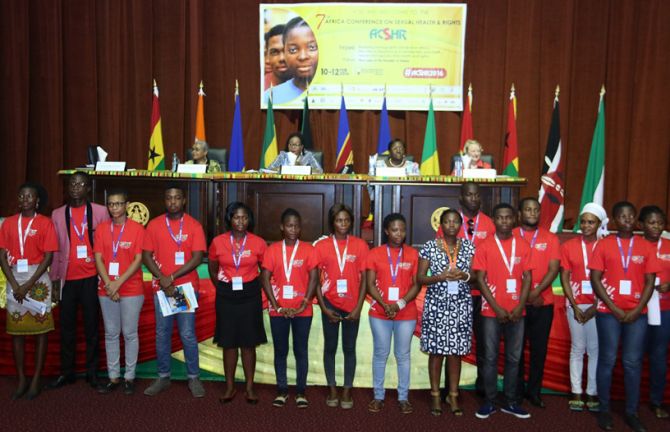
Update
Sexual health and rights and HIV integration critical to ending AIDS among young people
12 February 2016
12 February 2016 12 February 2016A powerful message about the need to progress on both the response to HIV and the sexual and reproductive rights of young people came out of the seventh Africa Conference on Sexual Health and Rights, which took place in Accra, Ghana, from 8 to 12 February.
The theme of the conference was “Realizing demographic dividend in Africa: the critical importance of adolescents and youth sexual and reproductive health and rights”. It was hosted by the First Lady of Ghana, Lordina Mahama, who is also the President of the Organisation of African First Ladies against HIV/AIDS (OAFLA), and brought together a broad range of stakeholders from government, the diplomatic community, youth groups, organizations of people living with HIV, the private sector, academia and the media.
The conference concluded that it was possible to end AIDS as a public health threat by 2030 only if the sexual and reproductive rights of young people were respected. The need for multisectoral investment in services for young people, including comprehensive sexuality education, was underlined.
Of the total number of adolescents living with HIV globally in 2014, 83% lived in sub-Saharan Africa. AIDS is now the leading cause of death among adolescents in Africa, and adolescents are the only age group in which AIDS-related deaths are not decreasing. In low- and middle-income countries, one in every three girls is married before reaching the age of 18, and one in nine is married before reaching their 15th birthday. Only a quarter of girls and a third of boys are reported to have a full understanding of how HIV is transmitted or how it can be prevented.
During the conference, Ms Mahama championed OAFLA’s launch of the continental All In campaign to end AIDS among adolescents. OAFLA also launched an initiative to end child marriage by 2020.
Quotes
“Enough is enough. Africa should no longer let its young people die from preventable diseases, nor allow young people to be immobilized by cultural practices that no longer have relevance. Achieving the 90–90–90 treatment target for HIV will help ensure no young person is left behind. As president of the Organisation of African First Ladies against HIV/AIDS and as a mother, I will rally the First Ladies around saving our adolescents from the effects of HIV. We will empower our young people to lead the drive—it is time to take the right action and make Africa a better place for the young.”
“The global community is daring to dream of a socially transformed world that is more equal, more peaceful, more sustainable. UNAIDS’ strategy recognizes the critical need to put youth, and particularly adolescent girls, at the heart of all efforts. Ensuring that young people can realize their sexual and reproductive health and rights is central to ending the AIDS epidemic. If we invest in girls and young women, boys and young men, and build coalitions across sectors, we can end AIDS by 2030.”

